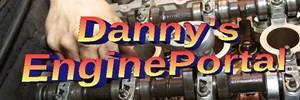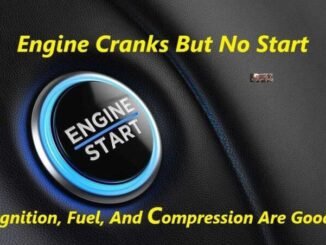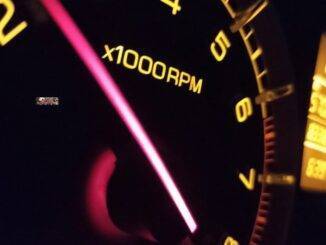
So, engine stalling issues can be frustrating, and always seem to happen at the worst possible time.
Most often, diagnosing the cause can seem like a complicated job.
But, the truth is, that all modern engines operate on the same basic principals. That means, that they all share the same common systems. So, any one or more can cause engine stalling issues.
Engine stalling issues, are not usually just one thing.
Instead, a number of different things can be to blame. And, in such cases, they will need further diagnostic troubleshooting, before a stalling condition can be fixed.
Initial Shock/Panic:
- Will it happen again?
- What caused it?
- Do you need to get it looked at?
- Is it still safe to drive?
- What is this going to cost?
Diagnosing engine stalling issues, often takes more thought, than actual work with your hands. So, time spent analyzing engine stalling issues, is more effective than wrenching.
Therefore, taking your time to do proper diagnostics, will pay off in the end. So, what do you do first? Get your vehicle to a safe place, so you can start your diagnostic testing.
How To Find Engine Stalling Issues
The Best Place To Start Is, With A Visual Inspection
Before attempting any diagnosis, it’s a good idea, to do a visual inspection of the engine. Is there a wire loose ? Did a vacuum line fall off ?
Do not look for a complicated solution, when your engine stalling issues, may only be a simple common problem.
Check For Any Diagnostic Trouble Codes (DTC)
On modern vehicles, the (PCM), stores a (DTC), when it senses a problem with one of the on board systems. Then, it turns on the check engine light (CEL).
These (DTC) codes help narrow things down and point, where to start your diagnostic process. Then, once you’ve retrieved the (DTC) code, follow the manufacturer’s given diagnostic procedures.
Check For A Faulty Sensors or Electrical Components
Modern engines rely heavily on, electrical sensors to function properly. So, when an electrical component, isn’t working properly. Then, the engine’s computer isn’t receiving the necessary information, to stay running. Consequently, if an electrical component is to blame, the vehicle’s check engine light (CEL) will come on.
So, a good first step, is to pop the hood and check all the electrical connectors. Consequently, the problem might be as simple as, a sensor that has become unplugged. But, if that’s not the case, you may have a sensor that needs replacing. And, there are many that can cause, engine stalling issues.
Some Of These Sensors Include:
Mass Air Flow (MAF) Sensor
The (MAF) sensor measures the mass of air entering the engine’s intake. Which is crucial for deciding the correct amount of fuel needed for combustion.
Engine Coolant Temperature (ECT) Sensor
The (ECT) sensor measures the temperature of the engine coolant. Then, sends this information to the (ECM).
Intake Air Temperature (IAT) Sensor
The (IAT) sensor measures the temperature of the air entering the engine’s intake.
Manifold Absolute Pressure (MAP) Sensor
The (MAP) sensor measures the pressure inside the engine’s intake.
Idle Air Control (IAC) Valve
The (IAC) valve regulates airflow to the engine during idling. Ensuring a stable and smooth engine speed, especially when the throttle is closed.
Also, Look For Any Temperature Related Problems
Stalling problems are often temperature related. And, are more apt to occur, during cold weather. This kind of stalling problem often means, the engine is not getting enough, fuel or too much air.
That’s why, a cold engine needs, a fairly rich fuel mixture to start and idle smooth.
Other Engine Stalling Issues May Include:
An Engine Vacuum Leak
Having a vacuum leak allows air to enter, where it shouldn’t. As a result, throwing off the air to fuel mixture.
Low engine Compression
This means that the cylinders in your engine, are not able to compress enough air for proper combustion. Which can lead to a variety of performance issues. This can be caused by a number of factors. Including worn piston rings, problems with the valves or head gasket, or issues with the timing belt or chain. And, in the worst case may require an engine rebuild or replacement.
Worn or Fouled Spark Plugs
Worn or fouled spark plugs can significantly impair engine performance. Causing issues like misfires, reduced fuel economy, difficulty starting and engine stalling issues. And, sometimes, you may not have any spark at all.
Bad Gas
Bad gas can cause starting problems, poor acceleration, and overall rough running. And, in some cases cause engine stalling.
In Summary: Engine Stalling Issues
So, this is just the tip of the iceberg, when it comes to testing and fixing, engine stalling issues. Consequently, with modern, computer controlled vehicles, there are a number reasons an engine may stall.
Thank You !!




